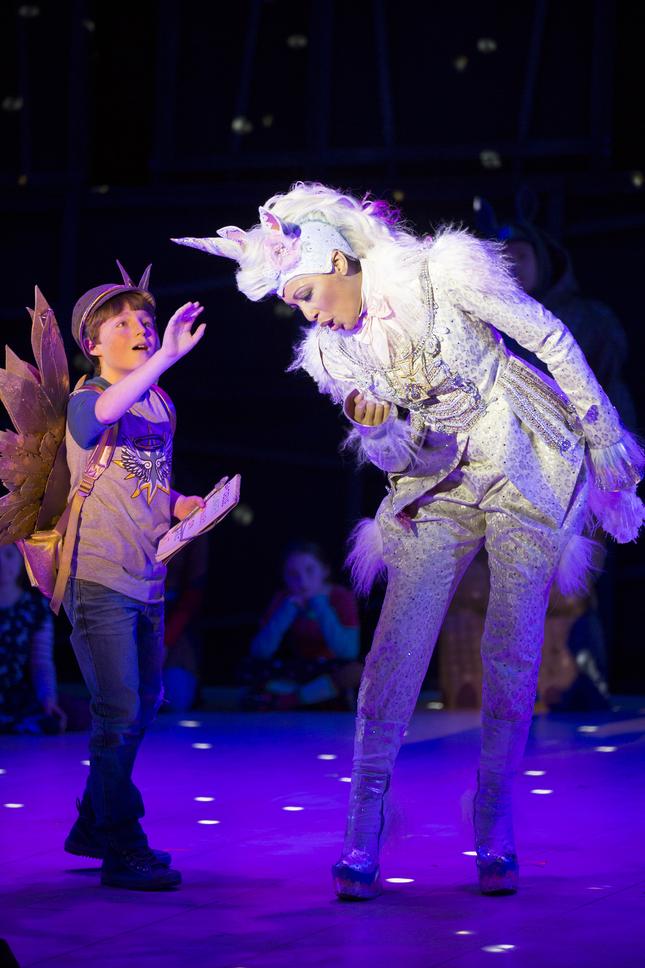WNO’s ‘Little Prince’: a Perfect Fable for Kids and Grown-ups
By • January 5, 2015 0 1174

Let’s hear it for Francesca Zambello.
If she has done or does nothing else, the Washington National Opera’s artistic director has just about managed in a very short time to institutionalize her cherished goal of involving children in opera as performers and audience members by programming children’s and family fare.
It’s a successful effort to which families and children stream to happy effect, as illustrated by the WNO staging of “The Little Prince,” based on the famed fable and book by French writer Antoine de Saint Exupery and on the original production staged at the Houston Opera and directed by Zambello.
To be sure, “The Little Prince” is not your usual fable, fairy tale or children’s book—it’s wispy, philosophical, and not easily digested as a story. But it is full of magical creatures and beings, as well as the little prince himself, who is a denizen of a tiny planet, where a rose is its most important apparition. He joins a human pilot whose plane has crashed in the desert on earth.
The narrative is not quick and fast, but the music—by film composer Rachel Portman—is accessible to children and adults alike, melodic and digestible.
“The Little Prince” is a kind of survivor’s fable which offers, instead of real adventures, nuggets of hope, tools not only to use to get by but to forge ahead and enlarge heart and soul.
It’s full of characters that are a performer’s (and costume designer’s) delight—a breathy, oily snake, a rose, the warm lamplighter, a king, a hunter and a warm, exquisite fox, played and sung in dazzling style by Aleksandra Romano.
This is the third children’s opera staged under Zambello—preceded by “Hansel and Gretel” and the lovely Christmas tale, “The Lion, the Unicorn and Me,” last season. “Cinderella” is coming up in the WNO spring season.
Precisely because it’s an opera (with non-traditional opera components) that doesn’t go down like your favorite ice cream but leaves room for food for thought, the reaction is all the more remarkable. I think the way it’s staged, the production fills up the heart and prods the imagination of adults and children alike.
Twelve-year-old Henry Wager, who played the angel last year in “The Lion, the Unicorn and Me,” sings movingly as a boy soprano, but it’s his stage presence that is undeniable. Slight, often somewhat bewildered but always open and curious, he’s the true heart of the production.
The production is aided by members of the Domingo-Cafritz Young Artist Program and the Washington National Opera’s Children Chorus.
In fact, the latter stir up the audience beautifully at the end of the first act, when they form double rows of lamplighters in the aisled of the Terrace Theater.
But “The Little Prince” is a little about education—the prince’s view of earth and adults and humans, the pilot’s education about the prince. Two notable lines remain in the mind: “What is essential is invisible to the eye” and the prince’s insight that “Grownups never understand anything by themselves, and it is tiresome for children to be always and forever explaining things to them.”
Mostly, “The Little Prince” was an exemplary example of the growth of WNO’s opera for children and the rest of the family, a production that left a rose-like imprint on the holidays.

